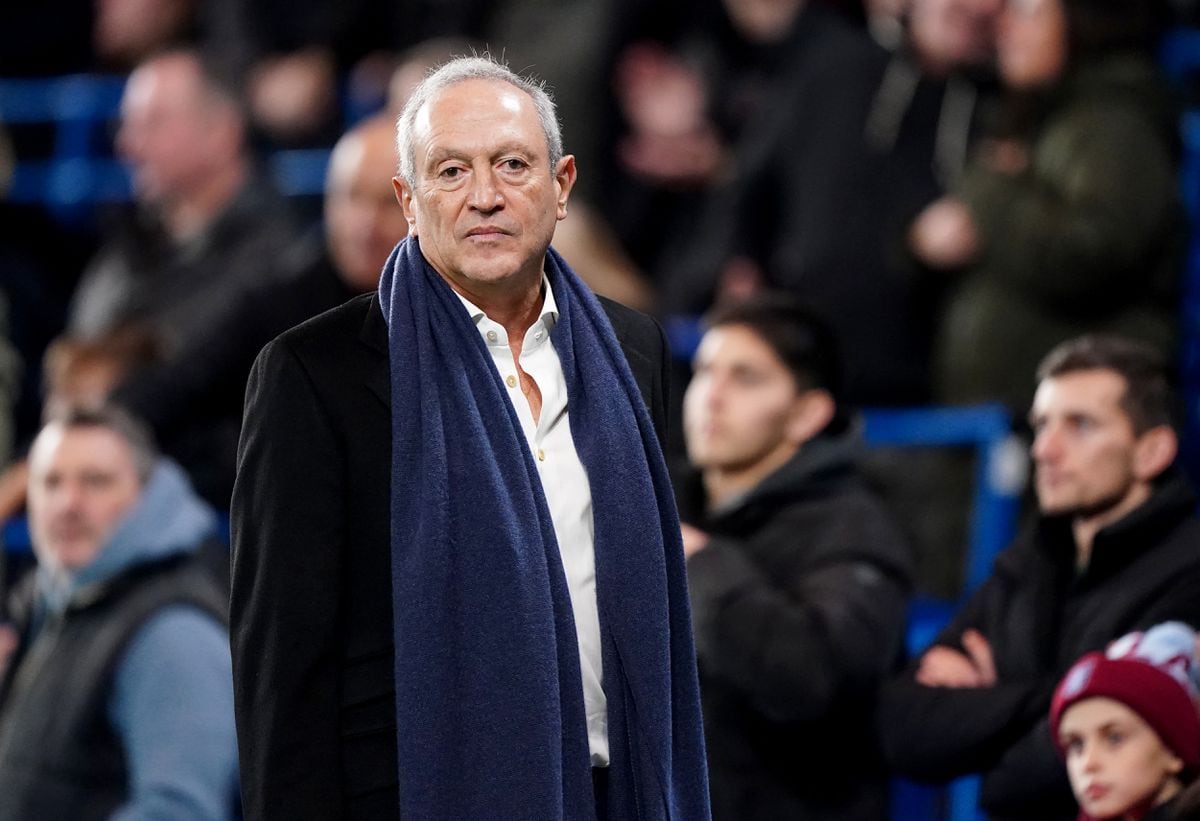
Egypt's richest man, Nassef Sawiris, and the crown jewel of his economic empire, chemical giant OCI, are once again in transition. After leading the Dutch-listed group into one of the world's largest fertilizer producers, Sawiris, who has a net worth of almost 8 billion euros according to Forbes magazine, is considering a radical change in the business. He still doesn't know where it will take him, but the Egyptian billionaire, whose investment portfolio includes English football club Aston Villa and sports multinational Adidas, is trying to redefine his future once again, true to the nature of doing and understanding business. His family.
One of the most drastic options that the 63-year-old businessman, also a member of JP Morgan's international board, is considering is to convert everything into banknotes and move into other sectors: further fragmenting his main holding company and selling off the parts a special purpose acquisition company, a SPAC. “We are quite open-minded,” he admitted in a recent unusual interview with the British newspaper Financial Times (FT). “We always say we are builders, not owners,” he said, in an apparent nod to his family’s business history.
Nassef Sawiris is the youngest son of the late Onsi Sawiris, whose first steps as a building contractor in Egypt were met with the wave of nationalizations of President Gamal Abdel Nasser's socialist government in the 1960s. With the rise of his successor Anwar el Sadat, the initiator of Egypt's opening policy to the private sector in the 1970s, Onsi returned to the fray and eventually turned Orascom Construction into one of the country's largest construction contractors. The company also thrived during the three decades of former President Hosni Mubarak's regime, during which the Sawiris always maintained close ties to Cairo's political elites.
The diversification of the business occurred in the 1980s and 1990s through his three foreign-educated sons, who took control of Orascom and expanded its activities into three sectors: the largest, Naguib, in telecommunications; the middle one, Samih, in tourism; and Nassef in construction, expanding into the cement industry and emerging markets, first as CEO and then as president of subsidiary Orascom Construction Industries, which was eventually renamed OCI.
In 2008, Orascom sold its cement division to the French company Lafarge for 10.2 billion euros. This included a subsidiary in Syria that years later pleaded guilty to paying millions of dollars to armed groups, including the Islamic State, to maintain their activities. The operation in 2008 saw Nassef Sawiris become one of the French company's main shareholders and followed its merger in 2015 with Switzerland's Holcim to become the world's largest cement company. Sawiris sold his shares in 2019.
The Sawiris carried out one of their largest corporate restructurings after Egypt's 2011 revolution. Under President Mohamed Morsi, the first democratically elected in a 2012 election, prosecutors imposed a travel ban on Nassef and Onsi Sawiris over a tax evasion case related to the sale of the cement division to Lafarge. Some interpreted the accusation as an attempt by the Islamist government to stoke liberal opposition or persecute those perceived to have benefited from the widespread corruption of the Mubarak years. The travel ban was lifted in 2013 after OCI paid millions.
During this time, OCI carried out a share swap with its Dutch parent company, moved to Amsterdam and focused on the chemical sector, particularly fertilizers. Shortly before, Naguib Sawiris had liquidated almost all of his assets in Egypt. But it was not until current President Abdel Fatah al Sisi's violent seizure of power in 2013 that the Sawiris again promised to invest millions in the country. Today, Orascom is the largest employer in Egypt and one of the companies that has benefited most from the government's infrastructure mega-projects. Although in recent months Nassef's brothers, Naguib – the most politicized – and Samih, in a very unusual form of criticism, have disapproved of the government's handling of the country's severe economic crisis.
Sports investments
Over the last decade, Nassef Sawiris has also found a strong path into the world of sports. In 2015, he acquired 6% of Adidas through his family investment company NNS. And in 2018, he teamed up with American billionaire Wesley Edens to create the V Sports holding company and take over 55% of Aston Villa, led by Spanish coach Unai Emery. V Sports also has a stake in the Portuguese Vitória. In 2020, NNS announced that it also owned a stake in the company that owns the NBA's New York Knicks and the NHL's New York Rangers hockey team. In his interview with the FT, Sawiris admitted that getting into the sport helped him change his perspective on the qualities behind success: “You come to the conclusion that attitude and work ethic are more important than talent at all times.”
However, Sawiris' eyes have been on OCI for a year now. Its board began a strategic review of its business last March, and as part of its asset sale bid, the company announced within just three days in December the sale of an Iowa fertilizer plant and its 50% stake in Fertiglobe, the largest fertilizer producer in the country Near East. The operations each amounted to more than 3.3 billion euros. All eyes are now on the methanol and ammonia divisions. And Sawiris has already pointed out that “there is more to come.”
His family company NNS also announced in December that it would join the long procession of billionaires who have moved to Abu Dhabi in recent years, in their case from Luxembourg. His intention is to invest in Europe, the Middle East and the US and, in his own words, to find “English law without the English climate”.
Follow all information Business And Business on Facebook and Xor in our weekly newsletter
The five-day agenda
The most important business quotes of the day, with the keys and context to understand their significance.
RECEIVE IT IN YOUR EMAIL
Subscribe to continue reading
Read without limits
_

